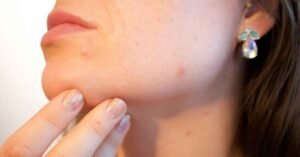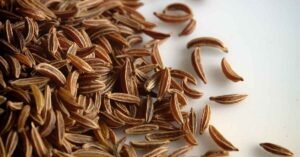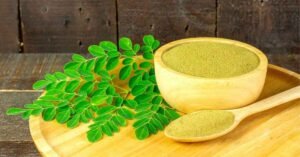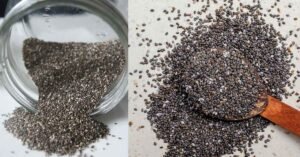
10 signs your liver needs detoxing can show up in many ways. You might feel tired, have digestive issues, or notice skin problems. Liver is one of the most vital organs in the body. It helps filter toxins, produces important proteins, and stores energy. But over time, if the liver becomes overloaded with toxins, it can affect its ability to function properly. Detoxing your liver is key to maintaining good health. In this post, we’ll explore 10 signs your liver needs detoxing, so you can take proactive steps to support your liver health and improve your overall well-being. Keep reading to discover how to recognize when your liver needs a detox and the simple changes you can make to feel your best.
Why a Healthy Liver Matters
A healthy liver is essential for:
1. Detoxification
- The liver is the body’s primary detox organ. It filters the blood from harmful substances, including drugs, alcohol, and metabolic waste. The liver converts these toxins into harmless substances, which are then excreted in bile or urine.
- If the liver isn’t functioning properly, toxins can accumulate in the bloodstream, leading to symptoms like fatigue, confusion, and jaundice.
2. Digestive Health
- Bile Production: The liver produces bile, a substance that helps break down fats in the small intestine during digestion. Without enough bile, fat absorption is impaired, leading to nutrient deficiencies.
- Fat Digestion: The liver’s role in fat digestion goes beyond bile production. It also helps metabolize lipids (fats), ensuring that the body uses them effectively for energy and other functions.
3. Blood Sugar Regulation
- The liver helps maintain blood glucose levels within a normal range by storing glucose as glycogen and releasing it into the bloodstream when needed. This is essential for energy balance.
- In cases of liver dysfunction, blood sugar imbalances can occur, potentially leading to conditions like diabetes or hypoglycemia.
4. Cholesterol Regulation
- The liver produces cholesterol, a vital component of cell membranes, hormones, and bile acids. It also helps remove excess cholesterol from the bloodstream.
- An unhealthy liver can lead to imbalances in cholesterol levels, contributing to conditions like atherosclerosis, which increases the risk of heart disease.
5. Protein Synthesis
- The liver synthesizes many important proteins, such as albumin, which helps maintain proper fluid balance in the bloodstream, and clotting factors, which are essential for blood coagulation.
- If the liver is compromised, it can lead to problems like bleeding disorders, edema (fluid buildup), and malnutrition.
6. Immune Function
- The liver plays an active role in the body’s immune defense system. It contains immune cells called Kupffer cells that filter out bacteria and other pathogens from the blood.
- Additionally, the liver produces proteins that help regulate immune responses and fight infections.
7. Hormone Regulation
- The liver is crucial in breaking down and removing excess hormones from the body. It regulates hormones like estrogen and thyroid hormones, maintaining a balanced hormonal environment.
- When the liver is not functioning well, it can cause hormonal imbalances, leading to symptoms such as weight gain, fatigue, or menstrual irregularities.
8. Vitamin and Mineral Storage
- The liver stores essential vitamins and minerals such as vitamins A, D, E, K, and B12, as well as iron and copper. These nutrients are released as needed to support various bodily functions.
- Deficiencies in these nutrients can occur if the liver is damaged, leading to problems like weakened bones, vision issues, and anemia.
9. Fat Metabolism
- The liver helps metabolize fats, converting them into forms the body can use for energy. It also produces lipoproteins that transport fats throughout the body.
- Poor liver function can lead to an inability to properly break down and use fat, resulting in conditions like fatty liver disease or obesity.
10. Liver Damage and Its Impact on Overall Health
- Fatty Liver Disease: This is a condition where fat builds up in the liver cells. It can be caused by alcohol abuse (alcoholic fatty liver disease) or other factors like obesity or diabetes (non-alcoholic fatty liver disease). Over time, fatty liver can lead to liver inflammation, scarring, and cirrhosis.
- Cirrhosis: This is a late stage of liver damage, where scar tissue replaces healthy liver tissue. Cirrhosis can lead to liver failure, which is life-threatening.
- Hepatitis: Inflammation of the liver, usually caused by viral infections, can severely impair liver function. Hepatitis can be acute or chronic, and over time, it can lead to cirrhosis or liver cancer.
11. Liver and Mental Health
- The liver’s role in detoxification also impacts brain function. When the liver cannot adequately clear toxins from the blood, these toxins can affect the brain, leading to symptoms like brain fog, confusion, or even hepatic encephalopathy (a serious mental condition caused by liver failure).
12. Role in Detoxing Drugs and Medications
- The liver breaks down medications, ensuring that they are either activated for use in the body or rendered inactive and removed through urine or bile. Overloading the liver with too many medications or alcohol can overwhelm its detoxifying capabilities, leading to liver damage.
10 Signs Your Liver Needs Detoxing
1. Fatigue and Low Energy
- Feeling constantly tired can be one of the earliest signs your liver is struggling. When the liver becomes sluggish, it can’t efficiently process waste, leading to a buildup of toxins in your body. This can leave you feeling drained and low on energy.
- How it happens: Your liver helps produce energy by processing nutrients. When it’s overwhelmed, it can’t effectively turn food into usable energy.
- Tip: Incorporate more liver-supportive foods like avocados, which are rich in healthy fats, and leafy greens, which are packed with antioxidants. You should also focus on reducing processed sugar and heavy foods that strain the liver.
2. Digestive Problems
- If you’re dealing with frequent bloating, constipation, or diarrhea, it may indicate your liver is struggling. The liver produces bile, which is essential for breaking down fats and aiding digestion. When bile production is impaired, digestion becomes difficult.
- How it happens: When the liver is overburdened, bile production slows down, leading to poor digestion. This can also affect your gut health.
- Tip: Try drinking water with lemon every morning to stimulate bile production. Adding high-fiber foods like chia seeds and oats can help support digestion during liver detox.
3. Unexplained Weight Gain or Difficulty Losing Weight
- If you’re gaining weight around the abdomen or struggling to lose it, your liver might be overwhelmed by toxins. A sluggish liver has trouble metabolizing fats and regulating hormones that affect weight management.
- How it happens: When the liver can’t metabolize fat properly, fat builds up, especially around the midsection.
- Tip: Include liver-friendly foods such as turmeric, apples, and green tea in your diet. These foods help cleanse the liver and speed up fat metabolism.
4. Jaundice (Yellowing of the Skin and Eyes)
- Jaundice, or yellowing of the skin and eyes, happens when the liver can’t process bilirubin, a byproduct of red blood cell breakdown. When the liver becomes inflamed or damaged, it may not be able to filter out bilirubin efficiently.
- How it happens: Bilirubin builds up in the bloodstream and causes yellow pigmentation in the skin and eyes.
- Tip: If you notice any signs of jaundice, it’s important to seek medical advice as it could indicate serious liver disease or other underlying health issues.
5. Skin Issues (Acne, Rashes, or Itchy Skin)
- If your liver is not detoxifying properly, toxins build up and can show up on your skin. Acne, rashes, and itchy skin are common signs that the liver needs a cleanse.
- How it happens: When toxins are not filtered out by the liver, they are released through the skin, causing irritation and breakouts.
- Tip: Increase your water intake and add skin-supporting foods like berries, carrots, and almonds. Consider using topical products that are gentle on your skin to avoid further irritation.
6. Dark Urine and Light-Colored Stool
- Dark urine and pale stools often signal liver dysfunction. The liver processes bilirubin, which affects the color of your urine and stool. When liver function is compromised, bilirubin isn’t properly processed, causing the changes.
- How it happens: Dark urine is a result of excess bilirubin being excreted in the urine. Pale stools occur when bile, which is responsible for stool color, isn’t being produced in adequate amounts.
- Tip: Stay hydrated and focus on a balanced diet to support healthy liver function. If this issue persists, consult a healthcare professional.
7. Bad Breath (Halitosis)
- Bad breath, also known as halitosis, can be a sign that your liver isn’t filtering toxins properly. When the liver is overwhelmed, toxins accumulate in your system and can be released through your breath.
- How it happens: Toxins build up in the body due to poor liver function, and some of these toxins are expelled through the breath.
- Tip: Try drinking herbal teas like peppermint or ginger to freshen your breath. Regularly detox with foods like cucumber and lemons that naturally help cleanse the body.
8. Swollen Abdomen (Ascites)
- Abdominal swelling, or ascites, is a serious sign of liver damage. It occurs when the liver can’t process waste properly, causing fluid to accumulate in the abdomen. This could signal liver failure or cirrhosis.
- How it happens: The liver’s inability to function properly leads to a buildup of toxins, which affects fluid balance in the body.
- Tip: If you experience sudden abdominal swelling, consult a doctor immediately. This could be a sign of severe liver dysfunction requiring medical attention.
9. Mood Swings and Irritability
- Mood swings, irritability, and even anxiety can result from poor liver health. The liver is responsible for detoxifying the blood, and when it’s not functioning well, toxins can build up in your body, affecting your mental health.
- How it happens: When the liver is overburdened, toxins such as ammonia build up, which can affect your mood and behavior.
- Tip: To improve mood, focus on liver-supportive foods like walnuts, which are rich in healthy fats, and omega-3-rich foods like salmon. Practice stress-relieving activities like meditation and yoga.
10. Increased Sensitivity to Chemicals or Foods
- If you notice an increase in sensitivity to chemicals, perfumes, or foods, your liver might not be detoxifying properly. When the liver becomes overwhelmed, it can’t process certain substances, leading to allergic reactions or sensitivities.
- How it happens: A compromised liver can’t filter out toxins effectively, causing your body to become more sensitive to external substances.
- Tip: Avoid exposure to harsh chemicals and artificial additives. Stick to natural, whole foods that are easy on the liver, such as organic fruits, vegetables, and lean proteins.
How to Detox Your Liver
If you experience any of the signs listed above, detoxing your liver can be helpful. Here are some liver detox tips:
- Eat Liver-Friendly Foods: Foods like garlic, turmeric, ginger, and leafy greens support liver function.
- Hydrate Well: Drinking plenty of water helps your liver flush out toxins effectively.
- Exercise Regularly: Regular exercise helps improve liver function by reducing fat and improving blood circulation.
- Limit Toxins: Reduce or eliminate alcohol, cigarettes, and processed foods, as they put additional stress on your liver.
- Try Herbal Supplements: Milk thistle, dandelion root, and artichoke extract are known to support liver health.
Some Liver-Cleansing Foods:

| Liver-Cleansing Foods | Benefits |
| Garlic | Activates liver enzymes, flushes toxins |
| Beets | Supports bile flow and detox pathways |
| Leafy Greens | Neutralize heavy metals, cleanse blood |
| Lemons | Boosts vitamin C and digestion |
| Turmeric | Reduces liver inflammation |
| Apples | Rich in pectin, helps cleanse the liver |
| Green Tea | Packed with antioxidants for liver health |
Liver Detox Drinks to Try

| Detox Drink | Ingredients | Benefits |
| Lemon Water | Lemon juice, warm water | Boosts digestion and detox pathways |
| Green Smoothie | Spinach, cucumber, apple, lemon | Alkalizes and nourishes the liver |
| Turmeric Tea | Turmeric, black pepper, ginger | Fights inflammation and supports cleansing |
| Apple Cider Vinegar Drink | ACV, honey, water | Balances pH and helps digestion |
Conclusion:
A healthy liver is essential for overall well-being. It plays a critical role in detoxifying the body, aiding digestion, regulating blood sugar and cholesterol, supporting the immune system, and maintaining hormone balance. When the liver is functioning properly, it ensures the body operates smoothly. However, liver damage can have wide-reaching effects on both physical and mental health. By taking steps to care for your liver—such as eating a balanced diet, exercising regularly, and avoiding harmful substances—you can help support its vital functions and protect your long-term health. Remember, a happy liver means a healthier, more vibrant you!
FAQs About Liver Detoxing
1. What are the early signs of liver damage?
Early signs of liver damage include fatigue, yellowing of the skin or eyes (jaundice), abdominal pain, and swelling. Other signs include dark urine, pale stools, and unexplained weight loss.
2. How can I detox my liver naturally?
To naturally detox your liver, consider eating foods like garlic, turmeric, beets, and leafy greens, drinking plenty of water, and avoiding alcohol or processed foods. Regular exercise and adequate sleep also support liver health.
3. How long does it take to detox the liver?
A liver detox can take anywhere from a few days to a few weeks, depending on your health, diet, and lifestyle. For long-term results, maintaining a healthy lifestyle is key.
4. Can liver damage be reversed?
Some liver damage, such as fatty liver disease, can be reversed with lifestyle changes like a healthy diet, weight loss, and avoiding alcohol. However, advanced liver damage, like cirrhosis, may not be fully reversible.
5. What is the fastest way to detox your liver?
Drinking water, eating antioxidant-rich foods, and avoiding toxins can support a quick detox.
6. How do I know if my liver is healthy?
Clear skin, good digestion, and steady energy levels are signs of a healthy liver.
7. Can stress affect liver health?
Yes! Chronic stress impacts hormone balance and liver function.
8. What herbs help detox the liver?
Milk thistle, dandelion root, and licorice root are popular herbs for liver cleansing.
9. What foods should I avoid for liver detox?
To detox your liver, avoid processed foods, alcohol, sugary snacks, fried foods, and excessive caffeine. These can stress the liver and hinder detoxification.
10. Is it possible to feel better after a liver detox?
Yes, after a liver detox, many people report increased energy, improved digestion, clearer skin, and better overall well-being.
11. What causes liver toxicity?
Liver toxicity can be caused by excessive alcohol consumption, certain medications, a high-fat diet, exposure to toxins, and viral infections like hepatitis.
12. Can a liver detox help with weight loss?
While a liver detox alone may not directly lead to weight loss, improving liver health can enhance metabolism and help the body process fats more efficiently.
13. How often should I detox my liver?
It’s generally recommended to detox your liver 2-3 times a year. However, maintaining a healthy lifestyle with a balanced diet is important year-round.
14. Is it safe to detox your liver?
Yes, liver detoxing is generally safe when done in moderation with the right diet and lifestyle. However, extreme detox methods can be harmful. Always consult with a healthcare provider before beginning any detox program.
15. Can liver detoxing improve skin health?
Yes, as the liver eliminates toxins from your body, it can improve skin clarity, reduce acne, and minimize other skin problems.














